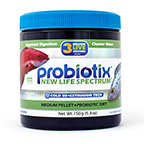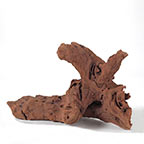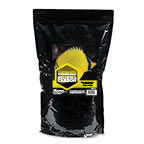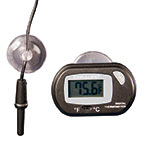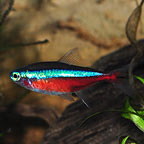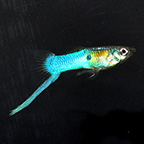Quick Stats
What do these Quick Stats mean? Click here for more information
What do these Quick Stats mean? Click here for more information
Overview
Daisy’s Blue Rice Fish is only known from a single locality in Sulawesi, Indonesia. This intriguing and diminutive little fish was named after Daisy Wowor from the Museum Zoologicum Bogoriense who first “discovered”, collected, and photographed this fish in the field.
Male Daisy’s Blue Rice Fish is a showy fish with a shiny and shimmery light blue body coloration with most of the fins highlighted or edged in brilliant crimson red. This gorgeous red coloration is also often expressed near the belly region of mature males. Female Daisy’s Rice Fish complement the males nicely with their overall yellow-gold body color with hints of orange coloration lining the back under-half of the fish and highlighting the edge of the tail.
Due to its diminutive size, the The Daisy’s Rice Fish is best kept by itself in a species tank or a biotope setup with other similar-sized communal fish. The Daisy’s Rice Fish is peaceful fish and will fare well in smaller planted aquariums aquascaped with driftwood, smooth rocks and leaf litter over a sandy bottom. A well aquascape planted aquarium will not only help bring out best coloration but will also provide structure and shelter for fry when breeding the Daisy’s Rice Fish.
Once acclimated and established in the home aquarium the Daisy’s Rice Fish will breed regularly with females frequently producing 10-20 eggs. The female’s eggs are adhesive and stick together as a clump attached to the female’s genital pore until she deposits it singly or in small clumps on vegetation. For optimal hatching of fry, remove the parents after spawning or collect fry after it has hatched and relocate to grow-out tank.
Feeding Daisy’s Blue Rice Fish is easy as long as they are offered varied food items small enough to fit in their mouths. Feed high quality omnivore flake food preparations including algae-based foods, tubifex and frozen/thawed brine shrimp and smaller bloodworms.
Approximate Purchase Size: 1/2" to 1-1/4"



